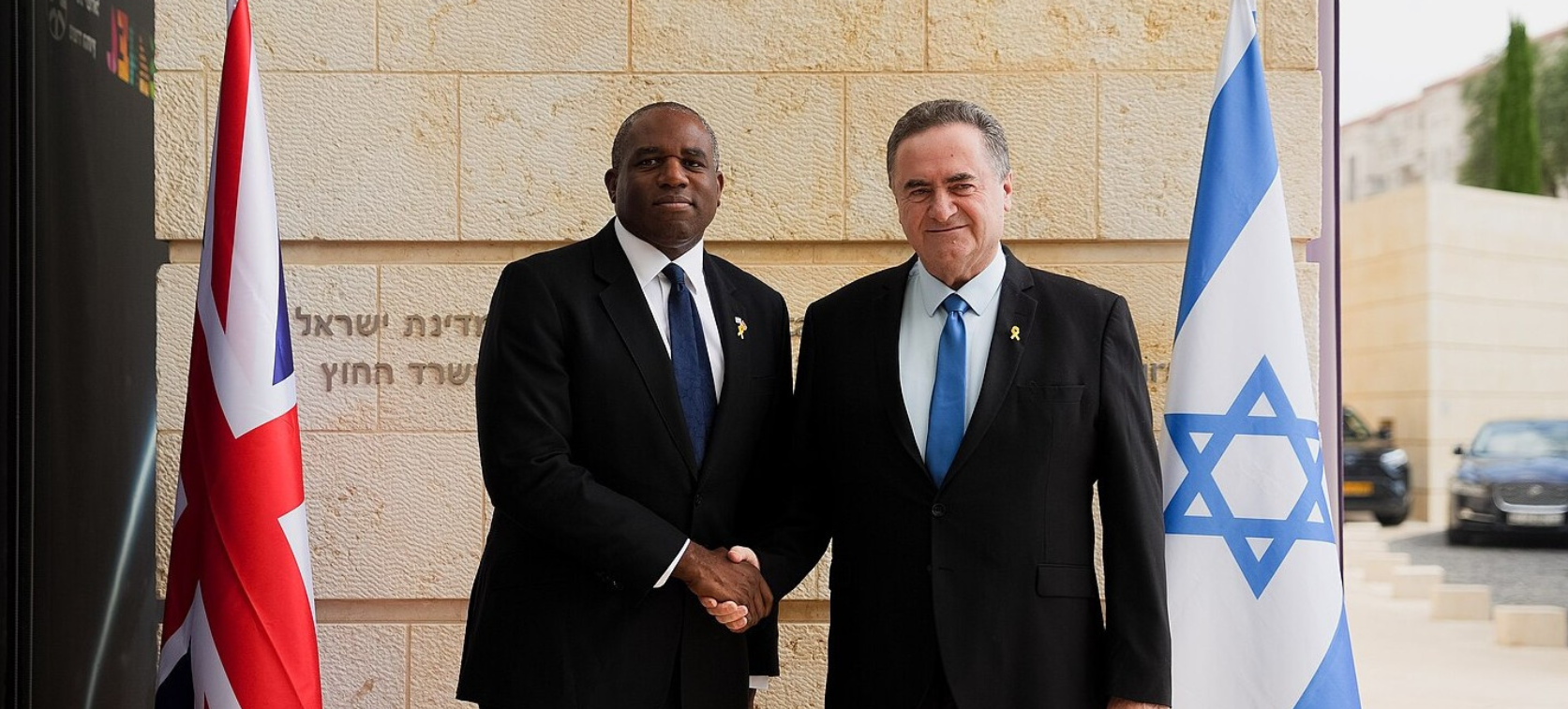In a move presented as a moral breakthrough, the UK, along with a handful of allies, imposed sanctions on two Israeli ministers — Itamar Ben-Gvir and Bezalel Smotrich — for inciting violence against Palestinians. The ministers, infamous for their far-right rhetoric, have openly encouraged settler aggression and ethnic cleansing. According to Foreign Secretary David Lammy, their statements have fuelled the settler attacks, displacement and intimidation sweeping through the occupied West Bank.
But make no mistake: this is not a turning point. It is a carefully timed piece of political theatre — a public relations exercise designed to give the illusion of accountability while avoiding any real confrontation with Israel or its war machine.
For months, the same British government sanctioning Ben-Gvir’s words has refused to condemn the missiles, starvation tactics, and mass civilian killings those words helped justify. Since 7 October, over 35,000 Palestinians — the vast majority civilians — have been killed in Gaza. Entire neighbourhoods have been flattened, hospitals bombed, universities destroyed, and aid blocked. Britain has continued to supply arms and intelligence to the state carrying out these atrocities. And now it wants credit for sanctioning two ministers?
This is not principle. It is damage control.
Individuals Blamed, Institutions Protected
The selective outrage is striking. While Palestinians have faced collective punishment — through siege, bombing, and forced displacement — Britain is going out of its way to emphasise that these Israeli ministers are being sanctioned “in their personal capacities”. Their ministries remain untouched. The Israeli military remains a partner. The state itself remains beyond reproach.
This contrast exposes the deep moral rot at the heart of British foreign policy. For Palestinians, there is no allowance for individual distinction — no recognition of civilians, no restraint, no due process. Gaza was treated as a single target. But when it comes to Israel, Britain suddenly rediscovers nuance, context, and restraint.
Ben-Gvir and Smotrich are not aberrations. They are products of a state that has made ethnic supremacy a core organising principle — not just in rhetoric but in law, in budget allocation, in military strategy. Their words are obscene, yes — but it is their policies that have been implemented in plain sight. To isolate them from the system they represent is not accountability. It is a smokescreen.
Britain’s Double Standard Begins at Home
This selective logic doesn’t just apply abroad. At home, Britain has used the rhetoric of counter-extremism to criminalise and surveil entire Muslim communities. Under Prevent, children have been interrogated for classroom comments, students reported for questioning foreign policy, and mosques monitored for sermons that dare to speak politically.
In Britain, suspicion is collective. The mere appearance of “radical” ideas — often nothing more than critiques of government policy or solidarity with Palestine — is enough to trigger state intervention. But when it comes to Israel, even the most explicit fascism is quarantined as a “personal opinion”.
If a British imam called for the erasure of a people the way Smotrich has, he would be in a police station by nightfall. If a Muslim MP praised torching a village, his career would be over. Yet for Israeli officials, even incitement to genocide is managed with diplomatic language and procedural restraint.
This Is Not a Watershed
Let us be honest: this is not a watershed moment. The racism and eliminationist ideology of Israel’s far-right is not new. Journalists, human rights groups, and even former Israeli officials have warned for years about the radicalisation of the Israeli political mainstream. Gaza has been under siege for nearly two decades. Settler violence has increased steadily. There have been massacres before.
So what changed?
Not the facts — but the optics. Britain’s hand has been forced by months of mounting global outrage: legal challenges, university protests, mass mobilisations, and the complete collapse of the Israeli PR machine. Public opinion, even among Israel’s traditional allies, has turned. The truth is no longer containable. This sanctions move is Britain’s attempt to appear responsive without altering its strategic position one inch.
It’s a performance designed to satisfy domestic audiences, not a genuine reckoning with Britain’s role in enabling this catastrophe.
Netanyahu: The Untouchable Architect
The clearest proof of this theatre lies in who remains untouched. Benjamin Netanyahu, the architect of this war, the man whose government enacted the starvation and siege of Gaza, the one who gave political cover to both Smotrich and Ben-Gvir, remains unchallenged. He responded to the sanctions with defiance, promising retaliation.
And what was Lammy’s response? Silence.
Because Netanyahu is not just another world leader. He is the steward of a project Britain helped create — from the Balfour Declaration to the brutalities of the Mandate. The British establishment sees in Israel not a rogue state, but a reflection of its own unfinished colonial enterprise. Israel, to put it bluntly, is Britain’s illegitimate child — armed, trained, and politically protected over generations.
And why would Britain want to discipline its own bastard child in public?
It wouldn’t — and it won’t. Instead, it prefers to target two expendable ministers while maintaining the core relationship with the Israeli state, its military, and its leadership.
Complicity Rebranded
The sanctions against Ben-Gvir and Smotrich are not a step forward. They are an attempt to draw a line around acceptable outrage — to say: “This far, and no further,” without ever addressing the source of the violence. They allow Britain to claim it is doing something, while continuing to arm the siege, fund the occupation, and defend the regime at the United Nations and in courtrooms across the world.
This is not foreign policy. It is crisis PR.
And in the face of what is increasingly recognised as a genocidal war, crisis PR is not just insufficient — it is immoral. It is an act of complicity, repackaged as diplomacy.
Need Help?
-
[email protected]
-
Follow us on Instagram
-
Follow us on TikTok
